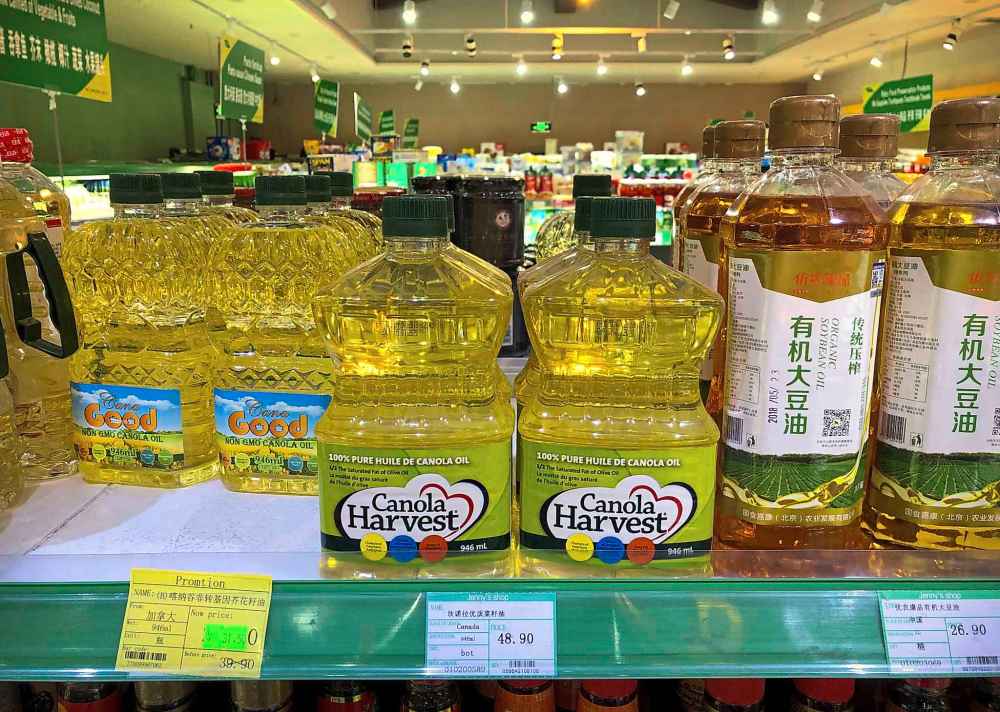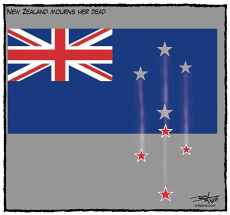Canola victim of new Cold War
Read this article for free:
or
Already have an account? Log in here »
To continue reading, please subscribe:
Monthly Digital Subscription
$0 for the first 4 weeks*
- Enjoy unlimited reading on winnipegfreepress.com
- Read the E-Edition, our digital replica newspaper
- Access News Break, our award-winning app
- Play interactive puzzles
*No charge for 4 weeks then price increases to the regular rate of $19.00 plus GST every four weeks. Offer available to new and qualified returning subscribers only. Cancel any time.
Monthly Digital Subscription
$4.75/week*
- Enjoy unlimited reading on winnipegfreepress.com
- Read the E-Edition, our digital replica newspaper
- Access News Break, our award-winning app
- Play interactive puzzles
*Billed as $19 plus GST every four weeks. Cancel any time.
To continue reading, please subscribe:
Add Free Press access to your Brandon Sun subscription for only an additional
$1 for the first 4 weeks*
*Your next subscription payment will increase by $1.00 and you will be charged $16.99 plus GST for four weeks. After four weeks, your payment will increase to $23.99 plus GST every four weeks.
Read unlimited articles for free today:
or
Already have an account? Log in here »
Hey there, time traveller!
This article was published 19/03/2019 (2460 days ago), so information in it may no longer be current.
John le Carré, the undisputed master of the modern Cold War spy novel, never used canola oil as one of the building blocks of his complex, geopolitical narratives. He might want to reconsider that decision for his next book.
In the new Cold War, canola oil and mobile telephones have seemingly replaced microfilm and cyanide tablets as the fodder for international espionage. For evidence, we need only look at the dilemma facing Winnipeg-based grain giant Richardson International Ltd.
China recently alleged that canola shipped by Richardson — the largest purveyor of the Canadian oilseed — was contaminated with pests. The country has banned Richardson shipments of canola for the foreseeable future.

If the allegation were true, it would be a devastating blow to one of Canada’s most successful exporters and the farmers that rely on its global reach. However, there is strong evidence that nouveau Cold War politics, and not agricultural pests, are behind this move.
Canadian officials have double-checked tests done on samples from these shipments and found no “irregularities.” If the canola is, in fact, pest-free, then what is China’s strategy?
Many believe this is yet another instance of retaliation by China for Canada’s arrest last fall of Meng Wanzhou, the chief financial officer for mobile technology giant Huawei. Meng was detained by Canadian officials and is facing extradition to the United States, where her company has been charged with bank and wire fraud, violating U.S. sanctions against Iran and obstructing justice.
That indictment is part of a broader technology dispute between the U.S. and China, with the former accusing the latter of using its advanced mobile technologies as a front for state-sponsored intelligence gathering. China and Huawei have denied these allegations. But under U.S. pressure, countries including Canada, the United Kingdom, Germany, Australia and New Zealand have already expressed concerns about whether Huawei phones and other related technology have enough safeguards to prevent them from being used to pry into the intimate details of citizens and businesses.
Richardson is not the only victim of this Cold War struggle. Two Canadians — diplomat Michael Kovrig and entrepreneur Michael Spavor — have been detained without charges after China alleged they were “stealing state secrets.”
It’s a tit-for-tat battle between the U.S. and China, with Canadian companies and citizens caught in the crossfire.
How should Canada proceed in this new Cold War? The path forward is not clear.

Prime Minister Justin Trudeau has said that Canada is a “rule of law country” that will honour its extradition treaty with the U.S. It is neither fair nor particularly effective for China to punish Canada for fulfilling its obligations under that treaty. Canada has already announced that extradition proceedings have begun. Meng will most definitely be sent to New York state, where the indictment against Huawei was filed.
However, fairness or effectiveness do not seem to be the order of the day in this dispute. These are desperate times and the major players in this conflict do not seem overly concerned about the collateral damage that will be done to Canadians doing business in China, either directly or through massive agricultural imports.
Canada is pleading its case, and publicly protesting China’s treatment of Canadians and Canadian companies.
However, until tensions between China and the U.S. ease, it’s likely that our canola will continue to be held hostage in a Cold War conflict that really has nothing to do with canola.
History
Updated on Tuesday, March 19, 2019 7:51 PM CDT: Corrects name reference to Meng Wanzhou









